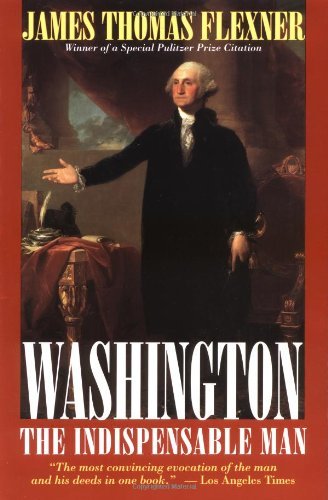
Washington: A Life
Book Description
A young man rises from humble beginnings to command a revolution and shape a nation. With each battle fought and betrayal faced, George Washington’s journey reveals a leader wrestling with duty, ambition, and the weight of destiny. Ron Chernow paints a vivid portrait of a man forged by conflict, driven by an unwavering commitment to freedom and democracy. From the blood-soaked fields of war to the hallowed halls of power, alliances are tested, and sacrifices made. Can one man’s vision truly unite a fractured land, or will the very ideals he champions tear him apart? Dive into this gripping tale of resilience and legacy.
Quick Book Summary
Ron Chernow’s "Washington: A Life" offers an illuminating, deeply researched portrait of America’s first president, transcending the marble bust tradition to reveal the complex, often conflicted man behind the myth. The biography traces George Washington’s journey from his formative years in colonial Virginia to his role as the commanding general in the Revolutionary War and eventually to his presidency. Through triumphs and setbacks, Chernow examines Washington’s internal struggles with power, leadership, and legacy as he guides a fledgling nation toward independence and self-definition. The book captures Washington as a figure of remarkable ambition and discipline, navigating political rivalries, personal betrayals, and the challenges of uniting disparate colonies while keeping his vision for liberty and governance at the nation’s core.
Summary of Key Ideas
Table of Contents
Formation of Character and Early Ambition
Born into a middling family in colonial Virginia, George Washington’s early life was marked by personal loss, responsibility, and ambition. Chernow draws on a vast array of letters and primary sources to illustrate Washington’s relentless pursuit of self-improvement and status. The loss of his father and older brother fueled his determination to rise above his circumstances. Traits such as discipline, strategic marriage, and careful cultivation of patronage positioned him as a respected figure among Virginia’s elite, laying the foundation for his public career.
Leadership in War and Revolution
The biography details Washington’s military ascent during the French and Indian War, highlighting both his youthful missteps and rapid maturation. His appointment as Commander-in-Chief of the Continental Army revealed a figure characterized by perseverance and adaptability. Despite numerous defeats, harsh winters, and lack of resources, Washington’s leadership sustained the revolutionary cause. Chernow reveals a man deeply committed to the ideals of independence, consciously shaping himself into a symbol capable of uniting fractious colonies while navigating the pressures and betrayals of war.
Navigating Power and Political Rivalry
After the war, Washington faced the difficult task of helping create a government from scratch, presiding over the Constitutional Convention and establishing precedents as the nation’s first president. He encountered fierce political rivalries, walking a fine line between various factions. Chernow explores Washington’s efforts to balance executive power with democratic ideals and his unease with partisanship. By cultivating an image of impartiality, Washington set critical standards for American leadership, including the peaceful transfer of power.
Moral Complexity and Legacy
Chernow does not shy away from the conflicted dimensions of Washington’s character, particularly regarding slavery and personal ambition. While he championed liberty and the rights of man, Washington remained a slaveholder, grappling with the contradictions between his values and practices. The biography reveals Washington’s evolving attitudes, including the eventual decision to free his slaves after his death—reflecting a man conscious of his legacy and nation’s soul.
Forging a National Identity
In his final years, Washington retreated to Mount Vernon, still wielding immense influence as the moral compass of the nation. Chernow argues that Washington’s willingness to relinquish power set him apart in history, cementing his status as an indispensable founder. The book concludes by asserting that the unity and precedence he established—through war, peacetime governance, and personal sacrifice—laid the groundwork for America’s enduring institutions and identity.
Download This Summary
Get a free PDF of this summary instantly — no email required.





